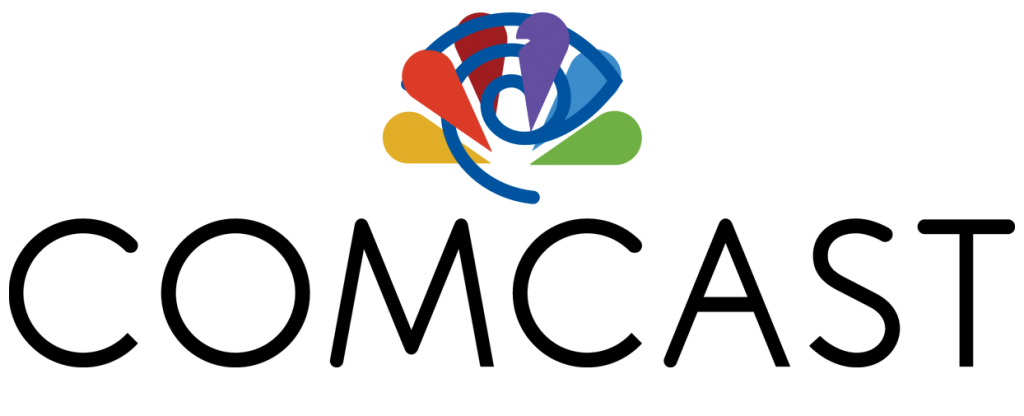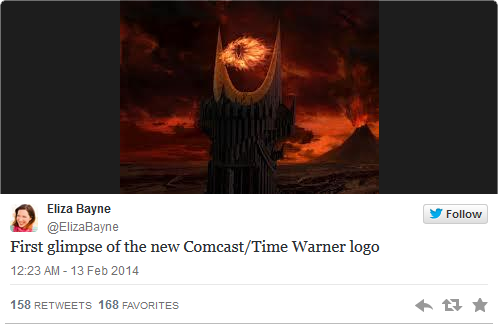Comcast & Time Warner Cable: A Wedding That Should Be Called Off Before It’s Too Late
 The streets covered in snow and ice aren’t the only changed landscape many of us woke up to this morning. As we learned overnight, Comcast has reached a $45 billion dollar deal to purchase Time Warner Cable.
The streets covered in snow and ice aren’t the only changed landscape many of us woke up to this morning. As we learned overnight, Comcast has reached a $45 billion dollar deal to purchase Time Warner Cable.
The companies themselves are confident that federal regulators will allow the deal to move forward. Comcast said in their press release that in order to “reduce competitive concerns,” they’d make sure to shed 3 million subscribers while they picked up Time Warner’s 11 million, bringing them to a total of roughly 30 million nationwide. And in their investor call, Comcast executives said, “We believe this transaction is approvable. It is pro-consumer, pro-competitive, and strongly in the public interest.”
While it’s true that Time Warner and Comcast do not currently operate in the same markets, there are still plenty of genuine “competitive concerns” to be had. A business analyst speaking with Bloomberg made it clear just how big this deal is for Comcast: “This leaves Comcast as the sole king of the cable hill, with John Malone and Charter hitting a brick wall in their hopes of becoming a close No. 2. This is a game changer for Comcast.”
A game changer not just for Comcast, but also for consumers. What’s good for the cable behemoth can be a very bad deal indeed for the rest of us. Time and time again we see that a lack of competition makes service and prices worse for consumers, while access to options makes things better. When the possibility of a merger rose back in January, law expert Susan Crawford wrote, “If merger and acquisitions activity in the telecommunications realm had a soundtrack, this moment would be accompanied by the menacing bass rumble of Jaws.”
Now it seems we’re up to the part where all the brass and percussion jump in. As the LA Times bluntly puts it, “There’s no way this combination can conceivably be in the public interest.”
Consumer advocacy groups agree. Consumers Union announced its opposition to the merger, with Delara Derakhshani, policy counsel for Consumers Union, saying, “Under this proposed deal, two huge companies would become a behemoth. This has the potential to be a very bad deal for consumers.” She added:
This industry is notoriously unpopular with consumers due to poor customer service, not to mention ever-increasing bills, and a deal this size doesn’t exactly convince us that things will get better. It’s hard to understand how this kind of concentrated market power, which would account for almost three-quarters of the cable industry, is going to benefit consumers. It raises several red flags about the power and influence that one company would have on the marketplace, and the impact it would have on your wallet and the choices you get. We’re counting on regulators to take a very hard look at what this enormous merger would do to competition, customer service, and bills that continue to climb year after year.
Other organizations are also strongly against the merger. John Bergmayer, senior staff attorney for Public Knowledge, said in a statement, “Comcast cannot be allowed to purchase Time Warner Cable. Antitrust authorities and the FCC must stop it. If Comcast takes over Time Warner Cable, it would wield unprecedented gatekeeper power in several important markets.” Bergmayer added:
[Comcast] is already the nation’s largest ISP, the nation’s largest video provider, and the nation’s largest home phone provider. It also controls a movie studio, broadcast network, and many popular cable channels. An enlarged Comcast would be the bully in the schoolyard, able to dictate terms to content creators, Internet companies, other communications networks that must interconnect with it, and distributors who must access its content. By raising the costs of its rivals and business partners, an enlarged Comcast would raise costs for consumers, who ultimately pay the bills.
Free Press president and CEO Craig Aaron echoed the statement, saying, “No one woke up this morning wishing their cable company was bigger or had more control over what they could watch or download. But that — along with higher bills — is the reality they’ll face tomorrow unless the Department of Justice and the FCC do their jobs and block this merger. Stopping this kind of deal is exactly why we have antitrust laws.”
So is a Comcast-Time Warner cable behemoth likely to be halted in its tracks by the Justice Department or the FCC? It’s hard to tell just yet. Comcast is clearly girding for battle, trying to rebuff anti-trust pushback right out of the gate.
Current FCC chairman Tom Wheeler spoke just this Monday about “the primacy of competition, competition, competition” as it related to net neutrality, and he reiterated the FCC’s commitment to “securing the public interest.” Those could yet turn out to be fighting words.
From film and TV content, to distribution, to cable, to phone and internet service, Comcast is reaching for vertical and horizontal integration on a scale the 20th century could barely even dream of. The silver lining? At least it makes for great jokes.
Want more consumer news? Visit our parent organization, Consumer Reports, for the latest on scams, recalls, and other consumer issues.


